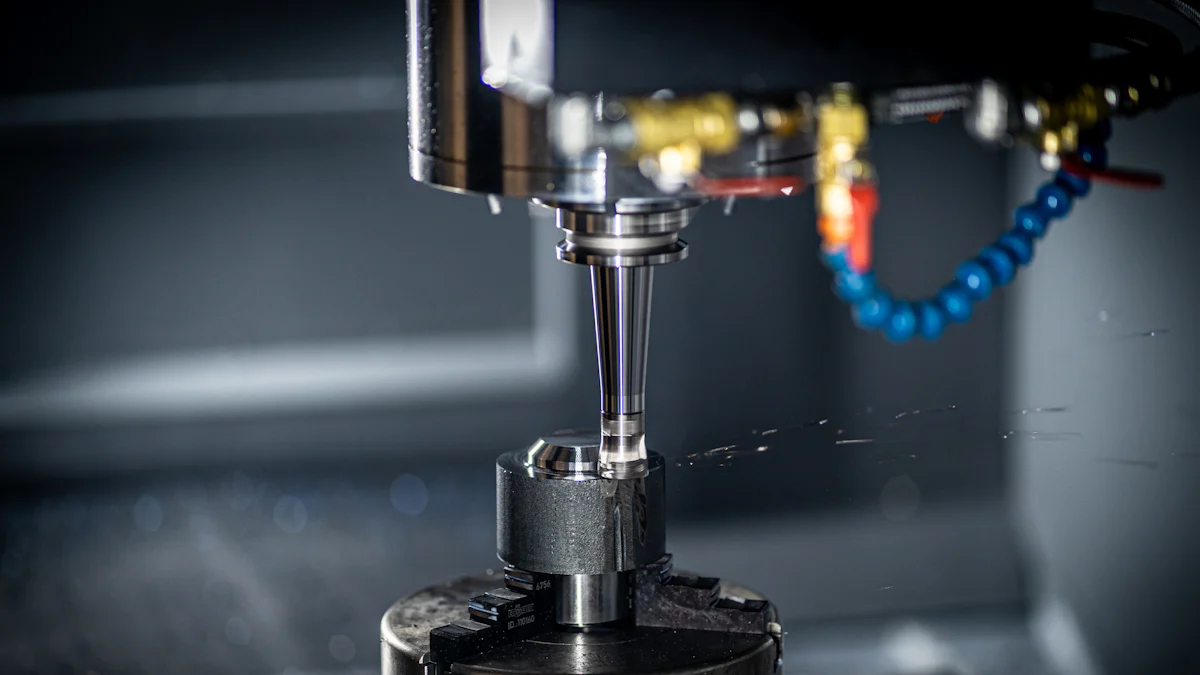Maximizing Processing Quality with CNC Precision Machining Technology

The Impact of CNC Precision Machining Technology on Processing Quality
Advantages of CNC Precision Machining
CNC precision machining technology, also known as computer numerical control precision machining technology, is a pivotal factor in the optimization of processing quality within the manufacturing industry. By leveraging advanced CAD software and implementing CNC programming, precision machining technology offers unparalleled precision and efficiency. This results in superior processing quality, ensuring that manufactured products meet the highest standards of accuracy and reliability.
List:
Enhanced precision and efficiency
Consistent and high-quality output
Enhancing Manufacturing Processes
Utilizing Advanced CAD Software
Advanced CAD software is a game-changer in the manufacturing industry, revolutionizing the way products are designed and developed. By utilizing advanced CAD software, manufacturers can create intricate designs with utmost precision, ensuring that every component meets the required specifications. This not only enhances the overall quality of the product but also streamlines the entire production process. The software allows for detailed 3D modeling and simulation, enabling manufacturers to identify and rectify any potential issues before actual production begins. Moreover, it facilitates seamless collaboration between design and manufacturing teams, leading to a more efficient and integrated workflow.
Implementing CNC Programming
The implementation of CNC programming brings a new level of automation and consistency to manufacturing processes. By converting design specifications into instructions for automated machinery, CNC programming eliminates human error and variability, resulting in unparalleled precision throughout the production cycle. This not only ensures consistent output but also significantly reduces the likelihood of defects or rework. Additionally, CNC programming enables manufacturers to optimize material usage and minimize waste, contributing to cost-effective and sustainable production practices.
Ensuring Product Quality
Quality Control Measures
Maintaining high standards of product quality necessitates the implementation of rigorous quality control measures throughout the manufacturing process. Quality control encompasses a series of systematic procedures and protocols designed to identify and rectify any deviations from the established quality criteria. By conducting thorough inspections at various stages of production, manufacturers can ensure that all components meet the specified standards before proceeding to the subsequent phases. This proactive approach not only minimizes the likelihood of defects but also instills confidence in the reliability and consistency of the final products. Effective quality control measures also involve comprehensive documentation and traceability, enabling manufacturers to track and address any issues that may arise, thereby upholding the overall integrity of the production process.
Precision Testing and Inspection
The integration of precision testing and inspection processes is pivotal in validating the accuracy and reliability of manufactured products. Through meticulous testing methodologies and advanced inspection techniques, manufacturers can verify dimensional accuracy, material integrity, and functional performance. These comprehensive assessments serve as crucial checkpoints to confirm that each product meets the stringent quality standards set forth by industry regulations and customer expectations. From non-destructive testing methods to coordinate measuring machines (CMM), precision testing ensures that every component undergoes thorough scrutiny, guaranteeing optimal functionality and durability.
Precision Engineering Advancements
Innovations in Precision Engineering
In recent years, the field of precision engineering has experienced remarkable innovations that have reshaped manufacturing processes, ultimately leading to higher processing quality. One notable advancement is the development of advanced materials with superior mechanical properties and enhanced durability. These materials have paved the way for the creation of components and parts with exceptional precision and reliability, meeting the stringent demands of modern industries.
Furthermore, there has been a significant focus on advancing manufacturing techniques such as additive manufacturing and nanotechnology. Additive manufacturing allows for the production of intricate geometries with unmatched accuracy, while nanotechnology enables the manipulation of materials at the atomic and molecular levels, resulting in products with unparalleled precision and performance.
Integration of Advanced Technologies
The integration of cutting-edge technologies into precision engineering has played a pivotal role in improving processing quality in manufacturing. Automation and robotics have streamlined production processes, ensuring consistent output while minimizing human error. Additionally, the utilization of artificial intelligence (AI) and machine learning algorithms has enhanced predictive maintenance capabilities, optimizing equipment performance and reducing downtime.
These advancements underscore the continuous evolution of precision engineering, driving the industry towards greater efficiency and exactitude in manufacturing processes.
Advantages of CNC Precision Machining
Impact on Production Efficiency
The utilization of CNC precision machining technology significantly enhances production efficiency in the manufacturing industry. By leveraging the capabilities of CNC machining technology, manufacturers can achieve unparalleled levels of precision and consistency in their production processes. This leads to a streamlined workflow, reduced lead times, and optimized resource utilization. The automation and accuracy offered by precision machining technology not only elevate the overall efficiency of manufacturing operations but also contribute to cost savings and improved competitiveness in the market.
See Also
Perfecting CNC Machining for Precise Parts Production
Recognizing the Significance of Precise CNC Machining in Production
Effective CNC Machining Solutions for Precise Manufacturing
Mastery of CNC Milling for Precise Parts Manufacturing
Tailored CNC Milling: Perfecting Precision Engineering Methods
About US
Follow Us
Your prototype holds unparalleled significance, and we deeply value its uniqueness. Collaborating with you during the preparation phase for running your prototype or parts is a commitment we gladly embrace. Whether it's a single part or a complex assembly, we are dedicated to selecting the optimal tools and pathways to bring your envisioned product to life.
At Precision Fab CNC Machining, we specialize in producing parts for prototypes, short runs, and high-volume production. Our prototyping machine capabilities extend across metal, plastic, and wood machining, with welding fabrication services available to complement and finalize your prototype if required.
Address
Address: Room320 10F, Building A,Nanshan international building, Dayawan District, Huizhou, Guangdong, 516001 China
Contacts
billy@timaycnc.com

